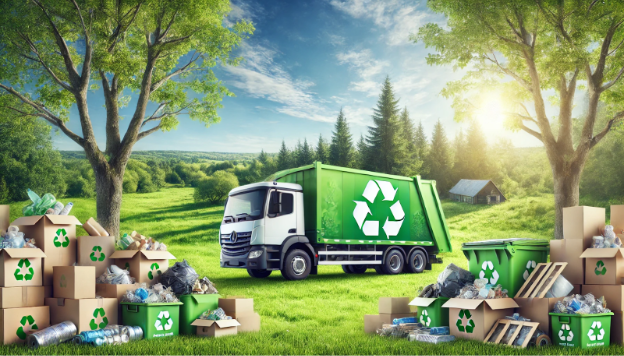
Eco-Friendly Junk Disposal – Your Guide to Sustainable Solutions
Junk piles up quickly—old furniture, electronics, and everyday waste. What if disposing of it responsibly could make a difference? Many don’t realize the environmental harm improper disposal causes. This article explores eco-friendly junk disposal, covering actionable steps to minimize waste while making a positive impact.
Why Eco-Friendly Junk Disposal Matters
Improper waste disposal harms the planet. Here’s why responsible junk management is essential:
- Environmental Protection: Reduces landfill overflow and greenhouse gas emissions.
- Conservation of Resources: Recycling saves materials and energy.
- Community Benefits: Donated items help those in need, extending product life.
A focus on sustainability ensures future generations inherit a cleaner planet.
7 Effective Eco-Friendly Junk Disposal Methods
1. Donate Usable Items
Instead of throwing away gently used items:
- Donate to local charities or thrift stores.
- Use platforms like Freecycle or Facebook Marketplace.
- Partner with shelters for furniture or clothing.
Pro Tip: Call ahead to confirm what items they accept.
2. Recycling Programs
Many materials can be recycled:
- Electronics: Drop off at designated e-waste centers.
- Metals: Take scrap metal to recycling facilities.
- Plastics: Use curbside programs or local drop-off bins.
Tip: Check local recycling guidelines to avoid contamination.
3. Composting
Organic waste, like food scraps and yard debris, decomposes naturally in compost bins:
- Reduces landfill waste.
- Produces nutrient-rich compost for gardening.
Start with a simple bin or use community compost programs.
4. Hire Eco-Friendly Junk Removal Services
Professional services ensure:
- Items are sorted for recycling, donation, or proper disposal.
- They minimize landfill contributions.
Search for providers committed to green practices in your area.
Table: Eco-Friendly Disposal Methods at a Glance
| Method | Benefits | Examples |
|---|---|---|
| Donation | Helps the community | Thrift stores, shelters |
| Recycling | Conserves resources | Plastics, metals, e-waste |
| Composting | Reduces organic waste | Food scraps, yard debris |
| Upcycling | Encourages creativity | DIY furniture, storage solutions |
| Junk Removal Service | Time-saving and efficient | Eco-friendly sorting and disposal |
| Garage Sales | Reuses items, earns money | Neighborhood or online sales |
| Hazardous Disposal | Prevents environmental harm | Paints, batteries, chemicals |
5. Upcycling and DIY Projects
Get creative with unwanted items:
- Turn old wood pallets into furniture.
- Transform jars and containers into storage solutions.
Fun Fact: Upcycling reduces demand for new materials.
6. Organize Garage Sales
Declutter and find new homes for items:
- Host a yard sale to sell unused possessions.
- Promote your event online for greater reach.
This option is eco-friendly and profitable.
7. Dispose of Hazardous Materials Properly
Some items require special handling:
- Paints, batteries, and chemicals can’t go in regular trash.
- Visit hazardous waste collection centers for safe disposal.
Key Tip: Research local guidelines for toxic waste.
Eco-Friendly Junk Disposal Tips for Busy Homeowners
- Sort Regularly: Separate recyclables, donations, and trash.
- Invest in Reusable Products: Opt for reusable over disposable items.
- Educate Your Family: Share simple practices to involve everyone.
Frequently Asked Questions (FAQs)
1. Why can’t I throw electronics in the trash?
Electronics contain toxic materials that can harm the environment. Recycling ensures safe handling.
2. Are junk removal services expensive?
Prices vary, but many eco-friendly companies offer affordable, transparent rates while prioritizing sustainability.
3. Can I recycle broken furniture?
Yes, many materials like metal or wood can be salvaged and recycled. Check with local centers.
4. How do I know if a junk removal service is eco-friendly?
Look for certifications, reviews, and clear policies on recycling and donations.
